A vast sea of people, stretching for kilometers from the offices of the Legislative Council in Admiralty to Victoria Park in Causeway Bay — and beyond — filled the streets of Hong Kong this afternoon to protest a controversial plan to allow extraditions to mainland China.
As of 6:30pm, four hours after the scheduled start, thousands of protesters were still waiting to begin their march. Organizers later said the crowd numbered over one million, dwarfing the city’s previous record protest, 2003’s July 1 protest, which saw some 500,000 people turn out to protest a controversial national security bill (the bill was ultimately shelved).
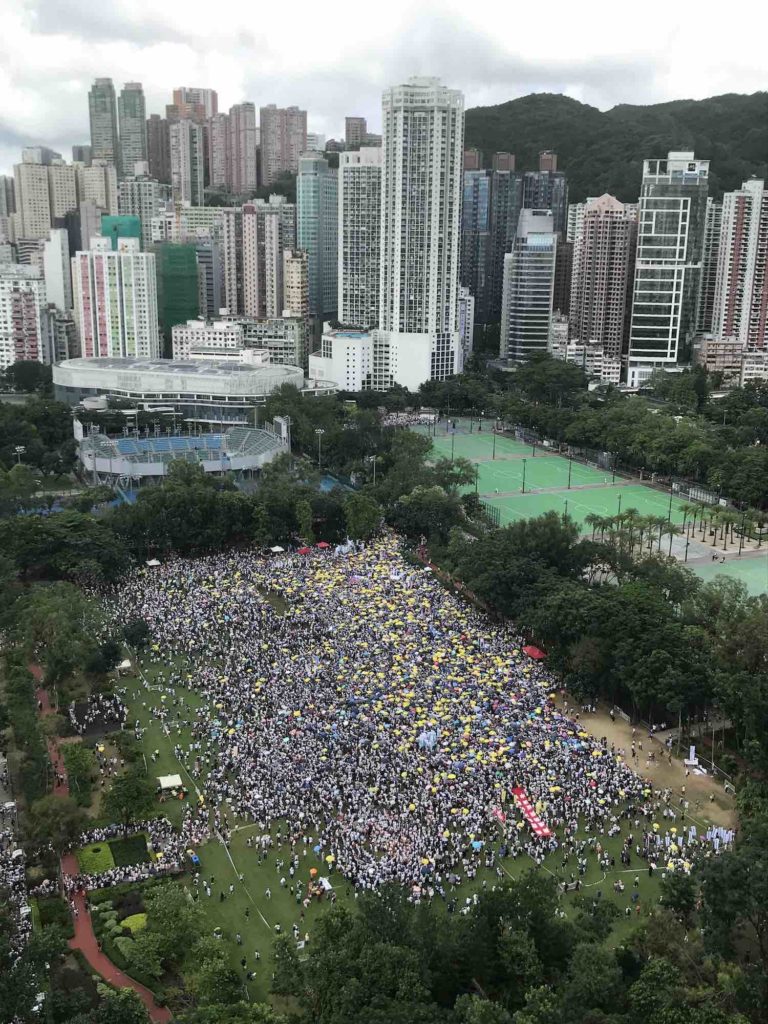
Police, who typically issue far, far lower estimates, said at least 240,000 people had participated in the march. Even this preliminary estimate, however, would make the demonstration the largest street protest since 2003.
The much-maligned bill at the center of today’s demonstrations would allow, for the first time since the handover, extradition to the mainland and other parts of China, which is currently explicitly forbidden under the city’s existing extradition laws.
Since the bill was first floated — ostensibly in response to an extradition request from Taiwan — opposition has poured in from an unlikely coalition of groups, including influential legal groups, business associations, clergy, students, and Western diplomats, in addition to the usual cast of pro-democracy politicians and activists.

Chants of “No China extradition!” and “Carrie Lam, step down!” — a reference to Hong Kong’s embattled chief executive — echoed through the city’s concrete canyons as the massive crowd wended its way towards the Legco complex.

The extradition bill has struck a chord in Hong Kong, where many see the semi-autonomous financial hub’s special freedoms — enabled by the “one country, two systems” doctrine — as under siege by an increasingly assertive Beijing.
One retiree, waiting for the march to get underway, said that the handover agreement between Britain in China, which was meant to preserve Hong Kong’s special status for 50 years, was beginning to look like a lie.
“Communist rule is extending its influence to Hong Kong,” she said. “The freedom of speech has been deteriorating here and the ’50 years, no change’ promise has not really been demonstrated.”
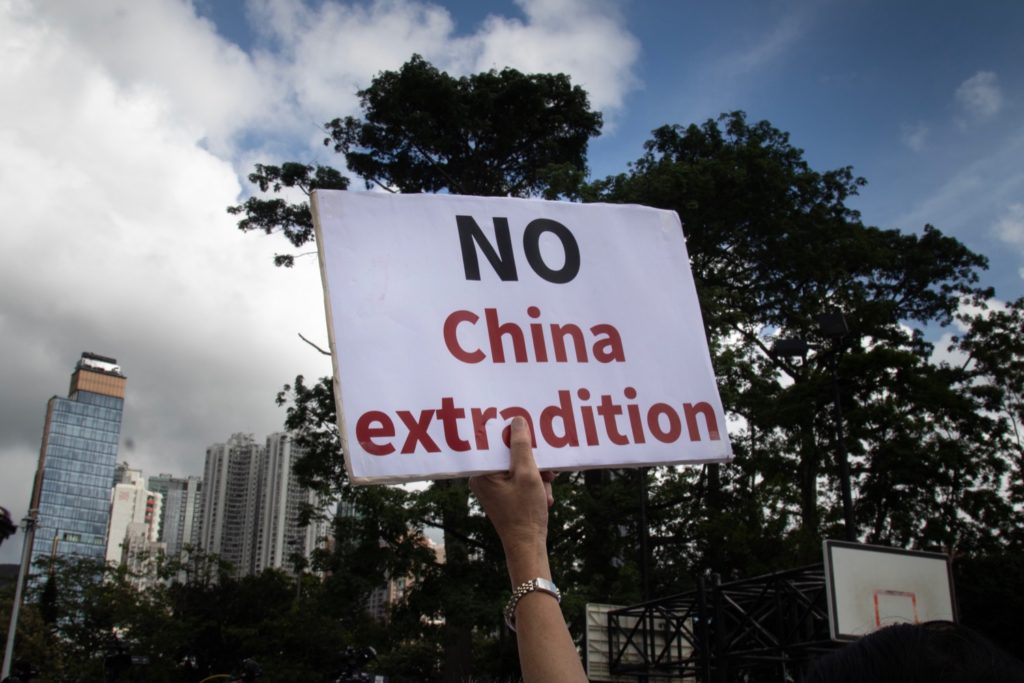
Another retiree, surnamed Lam, also said the “one country, two systems” framework was under threat, and pointed out that Taiwan has explicitly said that if the bill passes, it will not seek the return of the murder suspect, invalidating the government’s stated rationale for jamming the bill through the Legco.
“The Taiwan government had made clear that they would not agree to use the bill to transfer the murder suspect,” she pointed out. “Passing the bill right now is pretty much useless, and we can see that Carrie Lam has other intentions instead of just bringing justice in the murder case.”
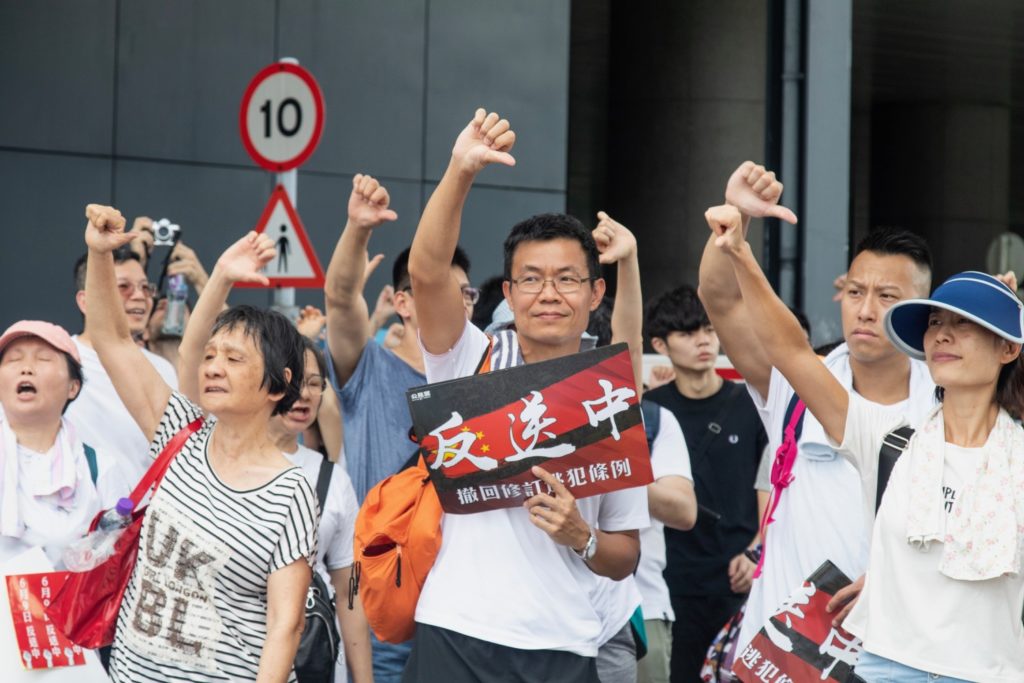
The sheer volume of protesters meant it was slow going for much of the route, with roads through Causeway Bay and Wan Chai totally choked by the thronging crowds. At one point, authorities were forced to open even more lanes of traffic to demonstrators to allow the mass of people to pass.
Reports of MTR station closures along the route, meanwhile, were widespread, and crowds were such that many would-be protesters were stuck underground for extended periods as they inched towards station exits.
Stuck between #HongKong amd Central MTR stations. Complete standstill. Lots leaving crowd via exit C Central. Pursue other travel plans from Central. @mtrupdate pic.twitter.com/JbIk5iDU0Z
— daaitoulaam (meow/miao/mao) (@daaitoulaam) June 9, 2019
Things didn’t go perfectly smoothly, and there were some reports of scuffles between marchers and police.
RTHK reports that police has used pepper spray in Admiralty around 8pm.
This video shows an altercation outside Admiralty Centre between police and protesters. March organisers CHRF urge protesters to keep walking, but the standoff continues. pic.twitter.com/U3kjyZQ5bT
— Holmes Chan (@holmeschan_) June 9, 2019
The protest, meanwhile, drew a new generation of demonstrators, many of whom saw the bill not only as an ideological threat to Hong Kong’s freedoms, but as a dismal harbinger of the diminished prospects for their own futures.
Jeffey Law, 21, a protest first-timer, called the bill “very dangerous for Hong Kong, especially for the next generation.”
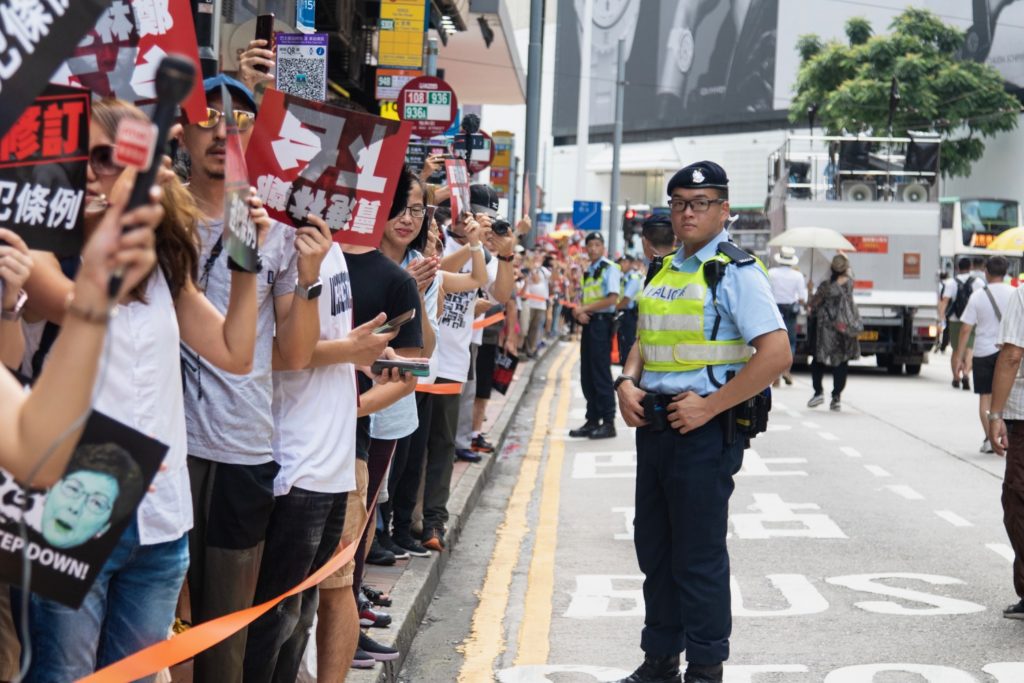
“It means that I cannot say what I want on websites; it’s bad for my freedom of speech,” he continued, adding that he was especially worried for Hong Kong’s reputation as an international business hub.
His friend Joseph Law, 20, (no relation), said he was unconvinced by government assurances that the law contained ample safeguards.
“They can arrest us with excuses, and we can’t defend ourselves in our long-established system,” he said.
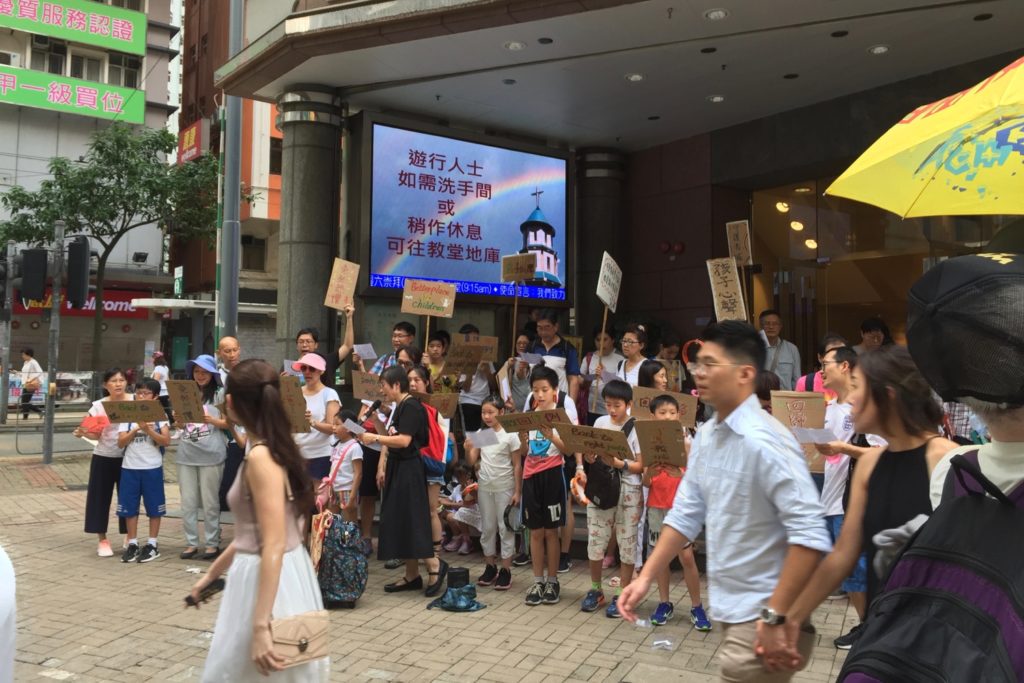
Peter Mak, 19, also worried that the passage of the extradition bill would hurt him personally.
“If it affects Hong Kong, then as a Hong Kong guy, I’ll be affected,” he said.
“There’s a lot of uncertainty here… Maybe my career path will change,” he added. “With so much uncertainty, we don’t know what will happen to our future.”
Mak said he too was no perennial protester, noting that he wasn’t a dyed-in-the-wool pro-dem, and had skipped many demonstrations in the past because they had seemed to have unrealistic, unattainable goals. Today, however, was different.
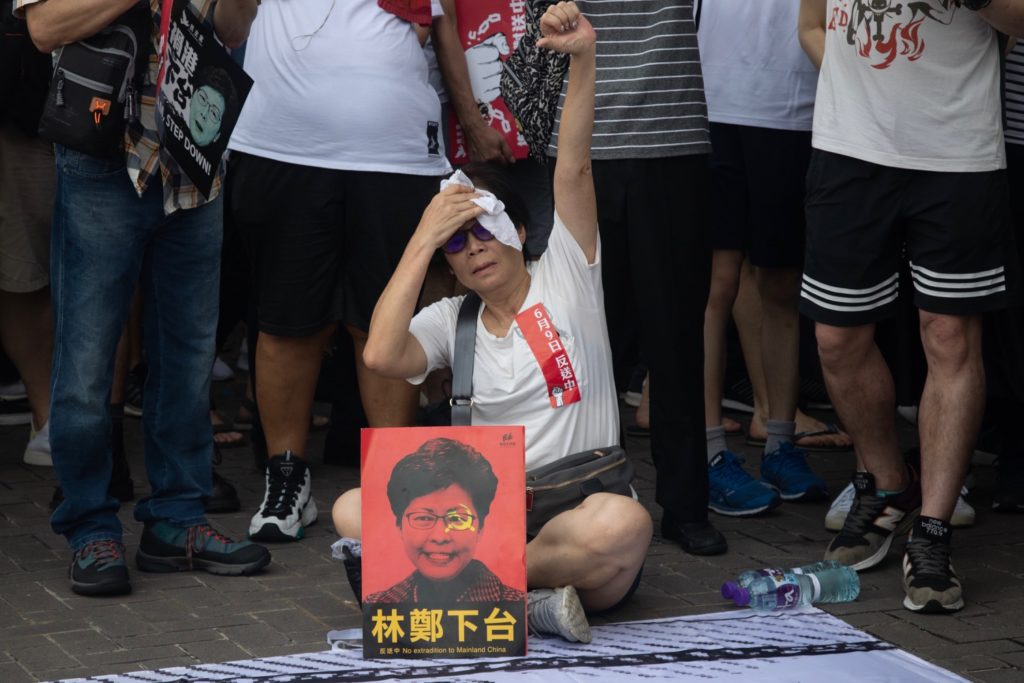
“I don’t agree with all those agendas,” he said, “but today is all about the extradition bill.”
Mak also singled out the case of the Hong Kong booksellers abducted by mainland authorities in 2015 as a case likely to become more common under the extradition bill.
“Now… that it’s changing, we are one step closer to being the People’s Republic of China.”
Reporting by Stuart White, Vicky Wong, and Iris To. Additional reporting by AFP.
NOTE: This story has been updated to include crowd estimates from organizers and police.
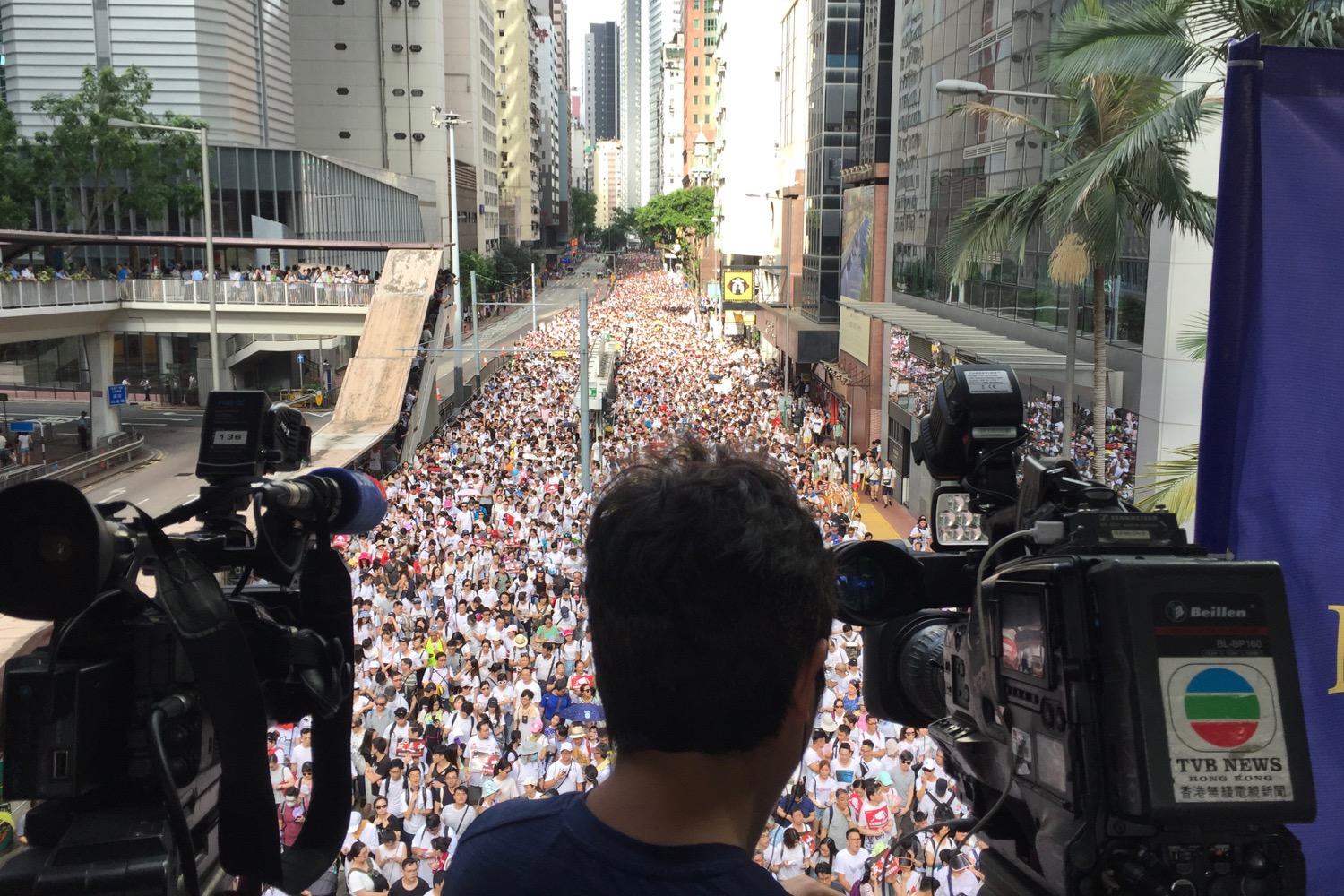


Reader Interactions